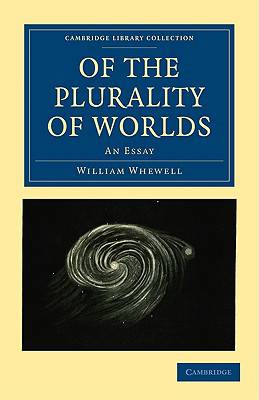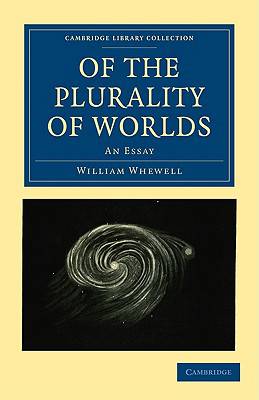
- Afhalen na 1 uur in een winkel met voorraad
- Gratis thuislevering in België vanaf € 30
- Ruim aanbod met 7 miljoen producten
- Afhalen na 1 uur in een winkel met voorraad
- Gratis thuislevering in België vanaf € 30
- Ruim aanbod met 7 miljoen producten
Zoeken
Omschrijving
This controversial essay, first published in 1853, addresses the question of the existence of intelligent life on other planets. It was first published anonymously, owing to the ferocity of the ongoing debates between the religious and scientific scholarly communities. Its author, William Whewell (1794-1866) was a leading intellectual of the Victorian period, and a notable polymath. A contemporary and adviser of Herschel, Darwin and Faraday, he wrote extensively on subjects ranging from astronomy and mineralogy to moral philosophy, educational reform and architecture, and engaged with John Stuart Mill in a lively debate about inductive reasoning. In Of The Plurality of Worlds, Whewell denied the probability of life elsewhere in the universe, afraid that the concept of extraterrestrial life would encourage the theory of evolution and put at risk mankind's connection to God.
Specificaties
Betrokkenen
- Auteur(s):
- Uitgeverij:
Inhoud
- Aantal bladzijden:
- 296
- Taal:
- Engels
- Reeks:
Eigenschappen
- Productcode (EAN):
- 9781108000185
- Verschijningsdatum:
- 20/07/2009
- Uitvoering:
- Paperback
- Formaat:
- Trade paperback (VS)
- Afmetingen:
- 140 mm x 211 mm
- Gewicht:
- 408 g

Alleen bij Standaard Boekhandel
+ 61 punten op je klantenkaart van Standaard Boekhandel
Beoordelingen
We publiceren alleen reviews die voldoen aan de voorwaarden voor reviews. Bekijk onze voorwaarden voor reviews.












